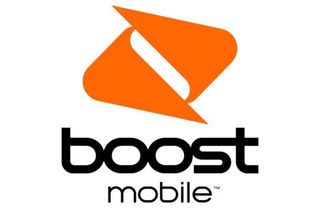Dish Says Boost Mobile Deal Will Close July 1

Dish Network ended days of speculation that had been swirling around its pending purchase of Boost Mobile, saying in a Securities and Exchange Commission filing that it will close its $1.4 billion purchase of the prepaid wireless service on July 1.
The news sent Dish shares up by more than 7% in early trading Thursday. The stock was priced at $37.59 each, up 6.5%, or $2.30 per share, at 10:30 a.m. on June 18.
In a brief SEC filing June 17, Dish said it had agreed to close the deal on July 1. Speculation had been high that the satellite giant was trying to renegotiate a lower price for the deal, in light of the COVID-19 pandemic. Some analysts also predicted that Dish may have been trying to assure that Boost customers would have access to handsets compatible with the T-Mobile cellular network.
Dish agreed to purchase T-Mobile’s Boost Mobile business earlier this year, part of the concessions the wireless carrier made in obtaining federal regulatory approval of its $26 billion purchase of Sprint. Dish had agreed to purchase Boost for $1.4 billion, and also pledged to purchase 800-Megahertz wireless spectrum from T-Mobile for $3.6 billion over three years. Dish also agreed to a mobile virtual network operator (MVNO) agreement with T-Mobile that would give it access to the larger company’s mobile network over seven years.
In a separate filing, T-Mobile said it now expects to add between 800,000 and 900,000 new postpaid wireless customers in Q2, up from previous estimates of between 0 and 150,000 additions. The company said the change reflected a faster than expected recovery in retail and new opportunities in its business segment. T-Mobile said its coronavirus-related costs were $450 million and merger-related expenses were between $800 million and $900 million.
T-Mobile also said it expects to take a $218 million non-cash goodwill impairment charge to its Layer3 TV unit in Q2, due to a “strategic shift” in its TVision Home pay TV service. T-Mobile purchased Layer3 for $325 million in 2018.
In the SEC filing, T-Mobile said its enhanced spectrum position -- from the Sprint purchase -- will allow the company to accelerate its in-home broadband strategy.
Multichannel Newsletter
The smarter way to stay on top of the multichannel video marketplace. Sign up below.
“The enhanced in-home broadband opportunity, along with the acquisition of certain content rights has created a strategic shift in our TVisionTM Home service offering to developing a video product which will be complementary to the in-home broadband offering and which we believe is necessary to enable higher penetration into the in-home broadband market,” T-Mobile said in the filing. “We believe the strategic shift will allow for greater competition and customer value by offering a more complete product suite for these customers.”
Also in a separate filing, T-Mobile said it has named SVP finance and chief accounting officer Peter Osvaldik as its new EVP and chief financial officer, replacing Braxton Carter, who will retire on July 1.
Carter, who spent 19 years at T-Mobile, will serve the company in a strategic advisory role for at least three months to ensure an effective transition, with an additional three months at the company’s option, through Dec. 31.
Osvaldik joined T-Mobile in January 2016 as vice president, external reporting and technical accounting. He was promoted to senior vice president, finance and chief accounting officer in June 2016. Prior to T-Mobile, Osvaldik held chief accounting officer, controller and manager roles at Outerwall, Coinstar and PricewaterhouseCoopers.
